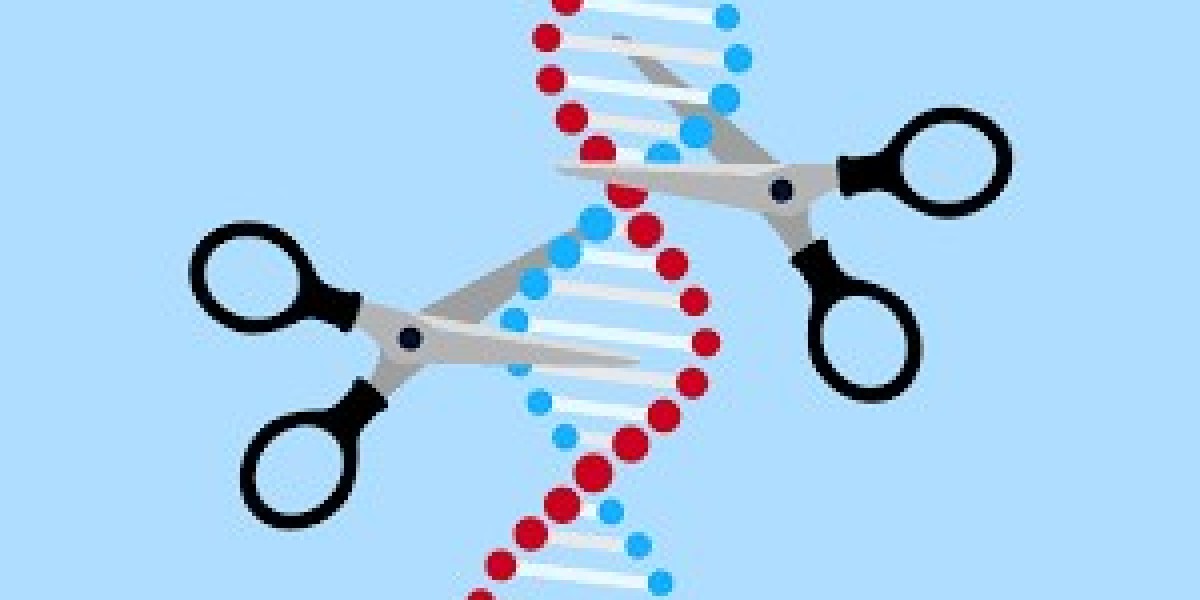Gene editing, a revolutionary technique in modern biotechnology, has been making waves across various fields, from healthcare to agriculture. This powerful tool allows scientists to precisely alter the DNA of living organisms, opening the door to numerous possibilities that were once thought to be the realm of science fiction. But what is gene editing, and why does it hold such transformative potential?
Understanding Gene Editing
At its core, gene editing refers to the process of making targeted changes to an organism's genetic material. This is typically achieved by introducing, deleting, or replacing DNA sequences within a genome. One of the most popular and widely discussed methods of gene editing is CRISPR-Cas9, a technology derived from a bacterial immune system. CRISPR (Clustered Regularly Interspaced Short Palindromic Repeats) acts like molecular scissors, cutting DNA at specific locations, allowing for precise genetic modifications.
While CRISPR-Cas9 has taken the spotlight due to its simplicity and accuracy, other techniques, such as TALENs (Transcription Activator-Like Effector Nucleases) and zinc finger nucleases, have also contributed significantly to advancements in gene editing.
Applications of Gene Editing
1. Medicine and Healthcare
Gene editing is revolutionizing the field of medicine. One of its most promising applications is in the treatment of genetic disorders. Diseases like cystic fibrosis, sickle cell anemia, and muscular dystrophy, which are caused by faulty genes, can potentially be corrected using gene-editing techniques. Scientists are also exploring the possibility of using gene editing to enhance immune cells to better fight cancers or combat infectious diseases like HIV.
Another groundbreaking area is gene therapy, where gene editing is used to replace defective genes with healthy ones, offering hope to millions suffering from previously incurable conditions.
2. Agriculture
In agriculture, gene editing is helping create crops that are more resilient to environmental challenges such as drought, pests, and diseases. By modifying specific genes, researchers can develop plants that have higher yields, require fewer chemical inputs, and have improved nutritional content. For example, scientists are working on editing the genes of rice to make it more resistant to flooding, a significant issue in many parts of the world.
3. Ethical Considerations and Designer Babies
One of the most controversial applications of gene editing lies in the possibility of editing human embryos. While this could eradicate hereditary diseases, it raises profound ethical questions. The potential to create “designer babies” — where parents could select traits such as intelligence, appearance, or athletic ability — has sparked debates about the moral and societal implications of such advancements.
Challenges and Ethical Concerns
Despite its immense potential, gene editing is not without challenges. Off-target effects, where unintended parts of the genome are altered, pose risks that could have unforeseen consequences. Moreover, ethical concerns surrounding gene editing — particularly in humans — have led to calls for stricter regulations and oversight.
Critics argue that tampering with the human genome could lead to a new form of inequality, with only the wealthy able to afford genetic enhancements. Additionally, there are fears about the misuse of this technology, whether in creating harmful biological agents or unregulated genetic modifications.
The Future of Gene Editing
Gene editing is undeniably a game-changer. As the technology continues to advance, it holds the promise of transforming medicine, agriculture, and numerous other fields. However, with great power comes great responsibility. Striking a balance between innovation and ethical considerations will be crucial to ensuring that gene editing is used for the betterment of humanity.
As research progresses, society will need to engage in meaningful discussions about how to regulate and implement gene editing responsibly. With its immense potential to reshape the future, gene editing is not just a scientific breakthrough but a profound societal challenge that demands careful navigation.









